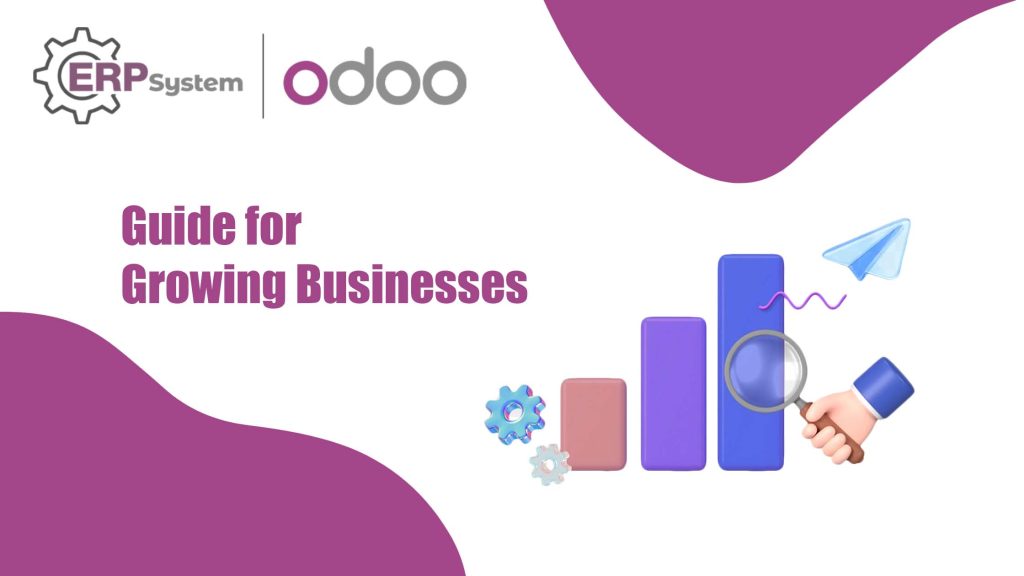
I. Introduction
As businesses expand, managing operations becomes increasingly complex. From handling finances and payroll to managing supply chains and customer relationships, inefficiencies can easily creep in if systems are fragmented. This is where Enterprise Resource Planning (ERP) software becomes indispensable.
Without ERP, growing businesses often struggle with:
- Manual errors due to repetitive data entry.
- Lack of integration between departments like finance, sales, and inventory.
- Inefficiency caused by disconnected tools and outdated reporting.
This guide will help you understand ERP software and walk you through the critical factors to consider when choosing the right solution for your growing business.
II. Understanding ERP Software
ERP software is an integrated business management system that unifies key processes into a single platform. Instead of juggling multiple standalone tools, ERP provides a centralized solution that streamlines operations, improves efficiency, and ensures real-time visibility.
Key ERP Modules
- Finance & Accounting – manage invoices, expenses, budgets, and compliance.
- Human Resources (HR) – payroll, employee management, and recruitment.
- Inventory & Supply Chain – track stock, logistics, and vendor management.
- Sales & CRM – customer data, orders, and sales performance.
- Production/Manufacturing – planning, batch tracking, and quality control.
Unlike standalone software (like separate accounting tools or CRMs), ERP integrates all of these processes, ensuring data flows seamlessly across departments.
III. Factors to Consider When Choosing ERP Software
1. Industry Fit
Every industry has unique workflows. Choosing ERP software tailored to your sector ensures smoother adoption and better results.
- Manufacturing: features like batch/lot tracking and production planning.
- Retail: POS integration, inventory management, and multi-location tracking.
- Services: project billing, time tracking, and resource planning.
- Finance & Distribution: GST/VAT compliance, multi-currency, and tax automation.
2. Scalability & Flexibility
Your ERP should grow with your business. The right solution should allow you to:
- Add new modules as needed (e.g., CRM, HR, or e-commerce).
- Scale up user access without disruptions.
- Adapt to new markets or compliance requirements.
Avoid rigid ERP systems that could hold you back as your company expands.
3. Cloud vs. On-Premise ERP
Businesses often struggle between choosing Cloud ERP or On-Premise ERP.
Cloud ERP:
- Lower upfront cost.
- Remote access from anywhere.
- Automatic updates and data backups.
On-Premise ERP:
- More control over data.
- Greater customization flexibility.
- Higher upfront investment in hardware & IT.
For growing businesses, cloud ERP often makes sense due to its affordability and accessibility.
4. Integration Capabilities
Your ERP should integrate with existing tools to avoid silos. For example:
- CRM systems for customer management.
- E-commerce platforms for online sales.
- Accounting software for compliance.
- Payroll & HR apps for employee management.
Modern ERPs offer API support and compatibility with third-party apps, ensuring smooth connectivity.
5. Vendor Support & Reliability
The ERP vendor plays a huge role in your success. Consider:
- Implementation support (customization, data migration).
- Employee training for smooth adoption.
- Regular updates to stay compliant with laws like GST/VAT.
- Customer support availability (phone, email, chat).
Check vendor reviews, certifications, and testimonials before making a decision.
IV. Implementation Considerations
Even the best ERP software can fail without proper implementation planning.
- Timeline: Define realistic milestones for rollout.
- Training: Ensure staff are trained to use the ERP effectively.
- Change Management: Minimize resistance by involving employees early and explaining benefits.
V. Checklist for Choosing the Right ERP
Industry-specific features
Scalable and flexible modules
Cloud or on-premise model that fits your business
Strong integration capabilities
Reliable vendor with solid support
Clear cost vs. ROI evaluation
VI. Conclusion
Choosing the right ERP software is not just a technology decision—it’s a strategic investment in your company’s future. The right ERP will streamline operations, ensure compliance, and empower you with real-time insights for growth.
If you’re ready to explore ERP options, consult with an expert, compare solutions, and request a free demo before making your decision.